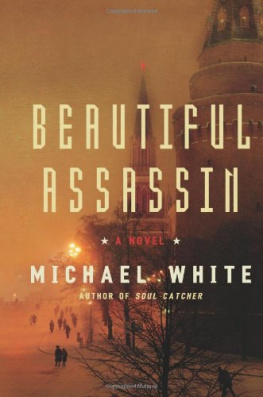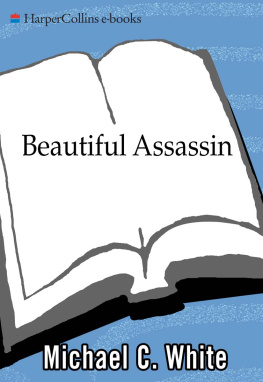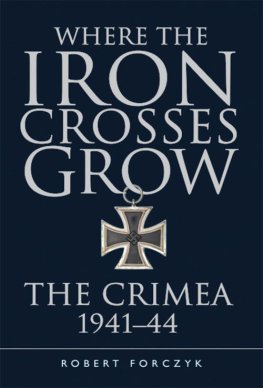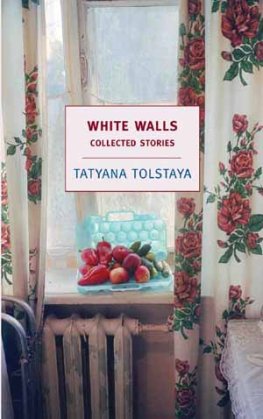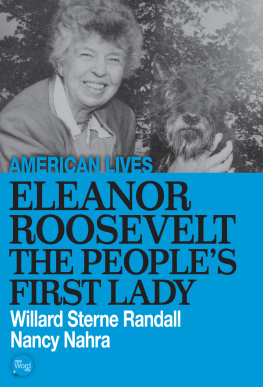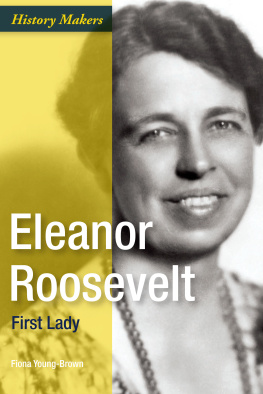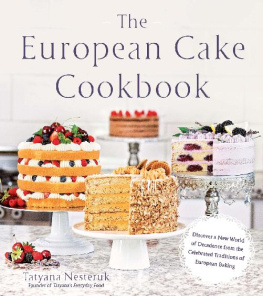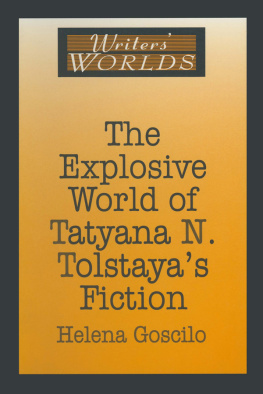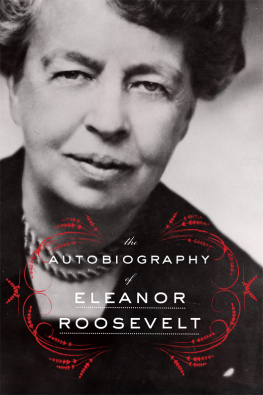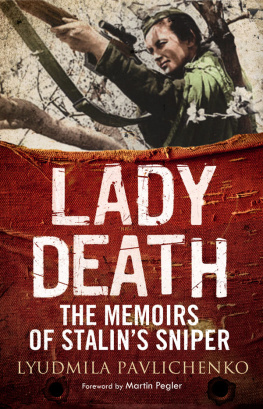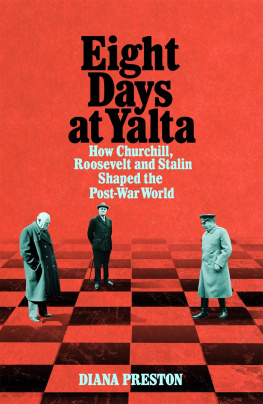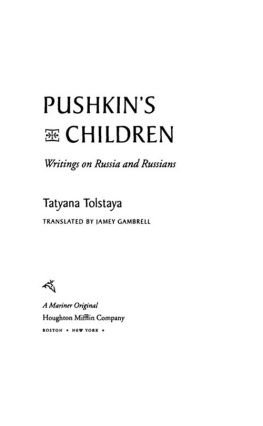Colorado, 1996
E lizabeth had driven several miles past the dirt road before it occurred to her that it might have been the one the old woman had told her to take. After glancing once more at the directions, she decided finally to turn the rental car around and head back along the same parched stretch of eastern Colorado road. The August afternoon was scorching, the blacktop ahead undulating like a snake trying to shed its skin. Her eyes ached from the glare off the pavement, and even with the air conditioner on full blast, her blouse clung damply to her back. On either side of the road, the brown, desiccated plains stretched out to the harsh blue of the sky. The sheer relentlessness of the landscape called to mind a train ride shed once made to Kiev for a story. Shed been traveling from Moscow, where she was the bureau chief for an American newspaper, and was on her way to interview one of the leaders of the Rukh nationalist movement. This was back in the eighties when the idea of an independent Ukraine was still a pipe dream. She remembered seeing out her compartment window the Russian steppes unfurling endlessly, their vastness giving her vertigo. Now, halfway around the world, she was, ironically, going to see another Ukrainian, one whod declared her own independence a long time ago.
There was no mailbox or marker, but she took the chance and turned down the narrow dirt road. She drove over a cattle guard, then up a bumpy incline. The washboard road kicked up stones against the cars undercarriage, the pinging sounding eerily as if someone were shooting at her. When the road leveled off, it appeared headed straight for a windbreak of cottonwoods off in the wavy distance. In the shelter of the trees stood a weather-beaten barn and several outbuildings, a windmill listing precariously, a small white farmhouse. That had to be her place, Elizabeth thought.
She wondered if the old woman would look anything like the person in the newspaper photos. Every picture Elizabeth had come across, as well as everything shed read about Tatyana Levchenko, only confirmed that she had been a striking-looking woman. A real knockout, one reporter had called her in that hard-boiled journalistic slang of the times. Dark hair done in those pin curls of the forties, short enough to tuck beneath the forage cap she sometimes posed in. The strong features, the high, Slavic cheekbones and slightly aquiline nose, the smooth, porcelain complexion. A full mouth that, for the cameras at least, was always made up with lipstick and smiling as buoyantly as a Girl Scout, an image that her uniform, with its cluster of impressive medals, only enhanced. Yet it was the eyes that drew the viewer: a lucid dark, wide and serious, exuding the innocent gaze of an ingenue having just arrived in the big city. But that image, of course, belied the facts, what shed accomplished in the war (one newspaper article had dubbed her the doe-eyed executioner). Elizabeth sensed something else lurking beneath those innocent eyes. Shed seen that look before, the masklike expression in the faces of the Muscovites she passed in the streets, the old babushkas cautiously avoiding eye contact with strangers, the young trained to be wary, as if their very thoughts were being monitored by the government. Elizabeth felt that if she could get beneath the public face of Tatyana Levchenko, she would get a glimpse of the real woman who lay beneath and the story shed been guarding for more than half a century.
The American press back then had had a field day with her. A Communist, war hero, scholar, poet, and on top of everything, movie star good-looking, a figure right out of central casting. Theyd fawned over her, eager to introduce her to an American public largely ignorant of their newfound ally, that notorious Russian Bear, and of a European theater of war that, in 1942 at least, was still just a distant rumble. She would have appeared to many a kind of Rosie the Riveter but with a rifle instead of a rivet gun. Today, her story would have commanded a seven-figure book deal; shed have been on the talk show circuit and had a flood of movie offers. But today, of course, the woman would be almost eighty, and, as she herself had obviously preferred it, a largely forgotten figure. As Elizabeth drove along she thought of that odd photo of Tatyana Levchenko up in a tree, one the Soviet press had reenacted for propaganda purposes, just as they had the blowing up of the Nazi eagle over the Reichstag days after theyd already taken Berlin. An obviously staged publicity shot with her wearing a camouflage poncho and holding a rifle, her face quite clearly made up, staring prettily through the scope at an imaginary enemyall the while perched in a tree! Elizabeth had read the accompanying article in the Saturday Evening Post, about her near-fatal duel with the German sniper. How much of it was true, though? How much simply Soviet propaganda? In fact, how much of the woman herself was to be believed, Elizabeth wondered, and how much was just an agitprop creation, that cold war tendency to distort reality for some desired political advantage?
As she neared the house, Elizabeth grew excited at the prospect she was finally going to meet the woman shed been hunting for years. She felt the sort of nervous anticipation she always did when covering a story that had consumed her so completely. But then she wondered if she should continue the subterfuge shed started when she first called, that of being a distant relative of the womans dead husband. She didnt like having to lie, felt her job as a journalist was to find the truth and tell it. But sometimes a small falsehood was the only way to get your foot in the door to a greater truth. She knew the woman would never have agreed to meet her if shed confessed her real intentions up front.
Who are you? Tatyana Levchenko had asked over the phone. Her English was fairly good but heavily accented, her labored breathing punctuated by raspy coughs.
Elizabeth Meade. Im related to your husband, Mrs. Bishop. Elizabeth used the womans married name, not Andreeva, the alias shed assumed more than fifty years before.
He never spoke of, the woman began, but then paused for an intake of breath. Any Meades.
My mother was a Bishop. May I call you Irina?
How did you find me?
Through some old letters of my grandmothers, Elizabeth lied.
What do you want?
Elizabeth could hear the wariness in the old womans voice, the caution of one whod spent years in hiding, first as a sniper and later a lifetime looking over her shoulder, waiting for someone to come for her. Just as they had for Trotsky. Or Walter Krivitsky, who was murdered by KGB agents in a Washington hotel room. Or like Juliet Stuart Poyntz, a Barnard professor and high-ranking American Communist Party member, as well as a Soviet agent. Poyntz had been invited to Moscow in the thirties, but after seeing the brutality of Stalins purges firsthand, shed turned on the Communist Party. Fearing she might betray important information, Soviet agents were rumored to have kidnapped her in Central Park, and she was never heard from again. In those days, no one was safe from the long reach and even longer memory of Stalin, or his brutal enforcer Beria.
Im a writer, Elizabeth explained. Im writing a family history. Id like to find out about your husbands side of the family.
Whats to tell? the woman said. My husband was not very close to them.
Id just like to talk to you. It would mean a great deal to me.
The woman fell stone silent on the other end for several seconds, so that Elizabeth thought shed hung up. But to her surprise, the woman finally conceded. It is a long way to come for nothing. But if you insist.
The next day, Elizabeth left New York on the first available flight for Denver. And here she was, about to meet Tatyana Levchenko, a figure whose sudden disappearance a half century ago had caused headlines.

